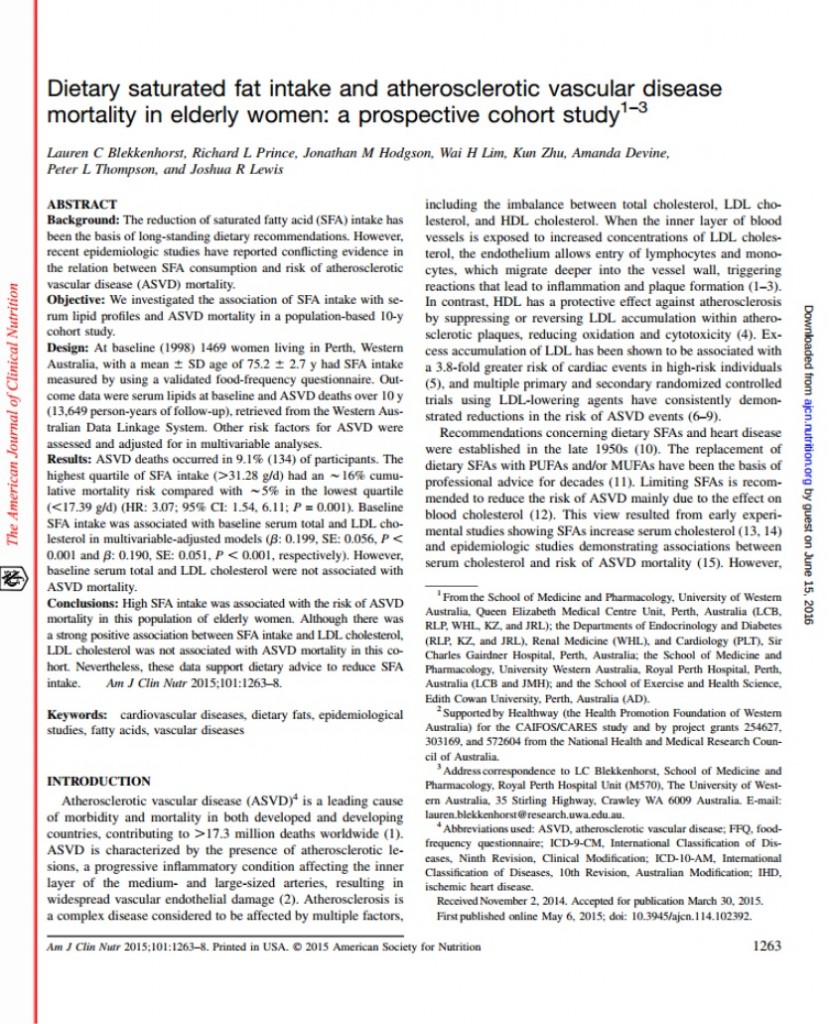It is understandable that the general public sometimes confuses the term ‘association’ with ‘cause and effect’. Afterall, the standard of journalism is deteriorating, and often the difference between these terms is not understood by the science writers who provide the material for reading. However, it is not understandable that professional PhD level scientists continue to fail to grasp the difference between these terms. In scientific observation, a relationship between two variables can be described with an association. Fire engines for example increase in frequency around burning buildings. As the number of fires goes up, the number of fire engines also goes up. This is an association. No one would claim that fire engines are the cause of the fires. Likewise diets that are high in saturated fat are associated with changes to cholesterol levels in the plasma. However, as with the previous example, it is not possible to state that the saturated fat has caused the rise in cholesterol levels. In order to do this other information is required and in this regard a clinical trial involving experimental work is required.
For example, if we wish to investigate the relationship between fires and fire engines, we may hypothesise that the fires are caused by fire engines. So we place some fire engines outside a house and observe if a fire starts. Obviously in this example we would see no fires and so conclude that fire engines are not the causative factor. Likewise if we feed people saturated fat, and make observations of cholesterol levels, what we find is that cholesterol levels do not change. From this we can conclude that saturated fat is not the cause of raised levels of cholesterol, and some other factor is required for this association to occur. In fact, what we find is that as the saturated fat content of the diet increases, the fibre content concomitantly decreases. When we feed individuals fibre, we see that their cholesterol levels decrease. We can therefore show experimentally that the association between saturated fat and cholesterol levels in the blood, is actually caused by the fibre content of the diet, and not the saturated fat content.
Therefore it is amazing that professional PhD level scientists continue to measure the association between saturated fat and cholesterol levels in the blood, with its supposed implications for cardiovascular disease, and yet then continue to treat the relationship as a cause and effect. Many studies that show an association, then go on to suggest that this association is reason to recommend a limit to saturated fat in the diet, totally ignoring large amounts of data that show the confounding variable, fibre, is the likely cause of this relationship. Below is one such study, published in the American Journal of Clinical Nutrition1.
The conclusion reads:
‘High SFA intake was associated with the risk of ASVD [atherosclerotic vascular disease] mortality in this population of elderly women. Although there was a strong positive association between SFA intake and LDL cholesterol, LDL cholesterol was not associated with ASVD mortality in this cohort. Nevertheless, these data support dietary advice to reduce SFA intake.’
I am sorry, but they show no such thing. Perhaps they instead show in inherent bias in your beliefs, that was present before you began the study?
RdB
1Blekkenhorst, L. C., Prince, R. L., Hodgson, J. M., Zhu, K., Devine, A., Thompson, P. L. and Lewis, J. R. 2015. Dietary saturated fat intake and atherosclerotic vascular disease mortality in elderly women: a prospective cohort study. American Journal of Clinical Nutrition. 101: 126301268


